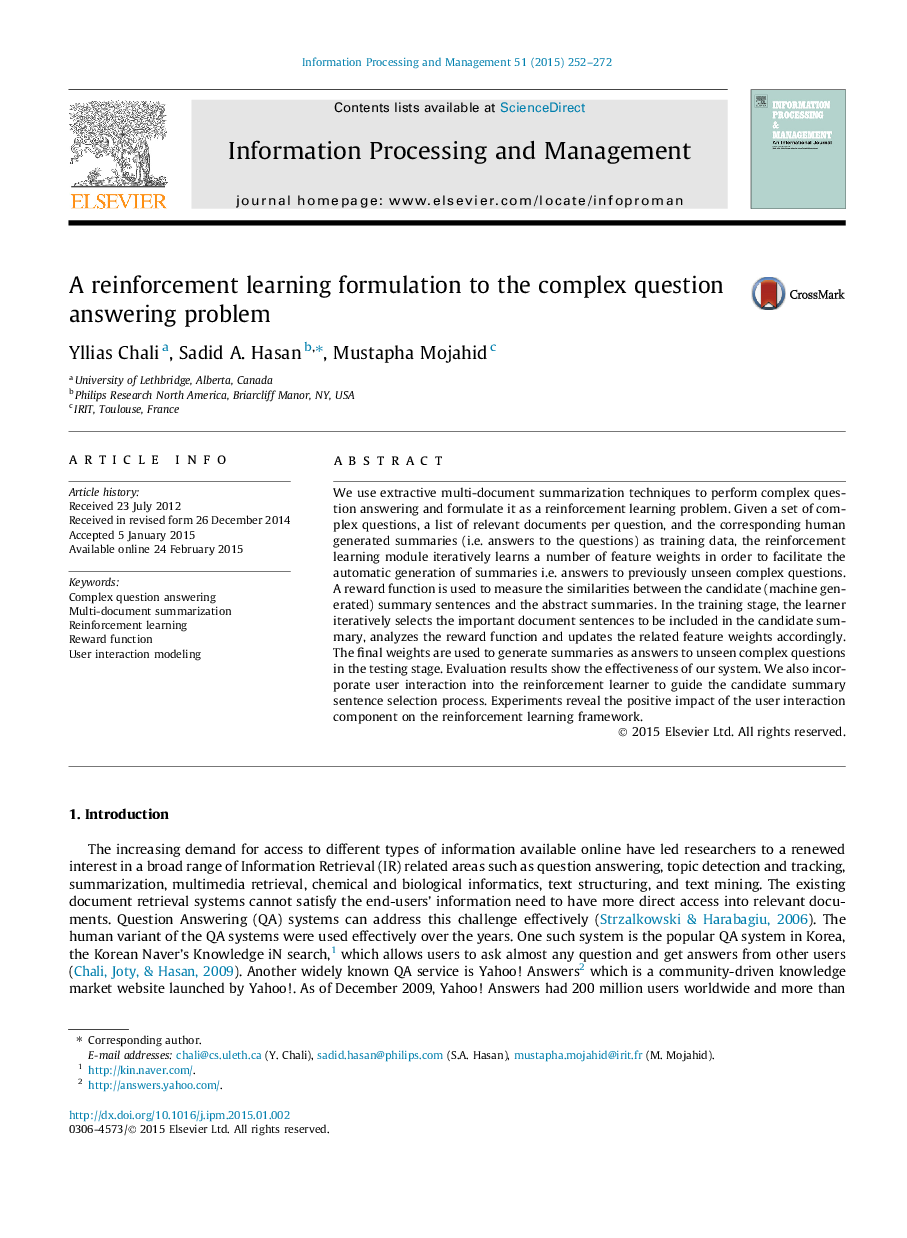| Article ID | Journal | Published Year | Pages | File Type |
|---|---|---|---|---|
| 514967 | Information Processing & Management | 2015 | 21 Pages |
•Reinforcement learning formulation for complex question answering.•Abstract summaries used for small amount of supervision using reward scores.•User interaction component incorporated to guide candidate sentence selection.•Experiments reveal that systems trained with user interaction perform better.•The reinforcement system is able to learn automatically and effectively.
We use extractive multi-document summarization techniques to perform complex question answering and formulate it as a reinforcement learning problem. Given a set of complex questions, a list of relevant documents per question, and the corresponding human generated summaries (i.e. answers to the questions) as training data, the reinforcement learning module iteratively learns a number of feature weights in order to facilitate the automatic generation of summaries i.e. answers to previously unseen complex questions. A reward function is used to measure the similarities between the candidate (machine generated) summary sentences and the abstract summaries. In the training stage, the learner iteratively selects the important document sentences to be included in the candidate summary, analyzes the reward function and updates the related feature weights accordingly. The final weights are used to generate summaries as answers to unseen complex questions in the testing stage. Evaluation results show the effectiveness of our system. We also incorporate user interaction into the reinforcement learner to guide the candidate summary sentence selection process. Experiments reveal the positive impact of the user interaction component on the reinforcement learning framework.
